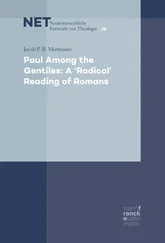Charles Gore - St. Paul's Epistle to the Romans - A Practical Exposition. Vol. I
Здесь есть возможность читать онлайн «Charles Gore - St. Paul's Epistle to the Romans - A Practical Exposition. Vol. I» — ознакомительный отрывок электронной книги совершенно бесплатно, а после прочтения отрывка купить полную версию. В некоторых случаях можно слушать аудио, скачать через торрент в формате fb2 и присутствует краткое содержание. Издательство: Иностранный паблик, Жанр: foreign_religion, foreign_antique, foreign_prose, на английском языке. Описание произведения, (предисловие) а так же отзывы посетителей доступны на портале библиотеки ЛибКат.
- Название:St. Paul's Epistle to the Romans: A Practical Exposition. Vol. I
- Автор:
- Издательство:Иностранный паблик
- Жанр:
- Год:неизвестен
- ISBN:нет данных
- Рейтинг книги:3 / 5. Голосов: 1
-
Избранное:Добавить в избранное
- Отзывы:
-
Ваша оценка:
- 60
- 1
- 2
- 3
- 4
- 5
St. Paul's Epistle to the Romans: A Practical Exposition. Vol. I: краткое содержание, описание и аннотация
Предлагаем к чтению аннотацию, описание, краткое содержание или предисловие (зависит от того, что написал сам автор книги «St. Paul's Epistle to the Romans: A Practical Exposition. Vol. I»). Если вы не нашли необходимую информацию о книге — напишите в комментариях, мы постараемся отыскать её.
St. Paul's Epistle to the Romans: A Practical Exposition. Vol. I — читать онлайн ознакомительный отрывок
Ниже представлен текст книги, разбитый по страницам. Система сохранения места последней прочитанной страницы, позволяет с удобством читать онлайн бесплатно книгу «St. Paul's Epistle to the Romans: A Practical Exposition. Vol. I», без необходимости каждый раз заново искать на чём Вы остановились. Поставьте закладку, и сможете в любой момент перейти на страницу, на которой закончили чтение.
Интервал:
Закладка:
Charles Gore
St. Paul's Epistle to the Romans: A Practical Exposition. Vol. I
PREFACE
A good excuse is needed for adding to the large number of excellent commentaries on the Epistle to the Romans which already exist. But I think there is such an excuse. These commentaries are not of the sort which readers who are educated but not scholarly find it easy to master; so that in fact this epistle is at the present day very much misunderstood or ignored by such people. And again, partly owing to its interpretation at the period of the Reformation and by some Evangelicals of later date, it is still practically to a great extent viewed with discomfort and neglected by those who most value the name of Catholic. My excuse, then, for adding to the expositions of the Romans lies in these facts. One who is necessarily immersed in the practical work of the Christian ministry, and is yet struggling to keep himself in some sense in line with biblical scholarship, if his life involves special disadvantages, may yet hope to be useful in interpreting to ordinary Christians the results of the scholars. And I am persuaded that it requires one who enters thoroughly into the spirit of churchmanship, or the obligation of the one body, to interpret with any completeness the mind of St. Paul.
This volume has practically no more connexion with lectures delivered in Westminster Abbey last Lent, than is implied in its being an exposition of the same epistle by the same person.
The method of exposition in this volume is the same as that pursued in its predecessor on the Epistle to the Ephesians. After a general introduction, each section of the Revised Version is taken, or in some cases two sections are taken together, and prefaced by an analysis or paraphrase, as seems most useful, and followed by further explanation of the main ideas or phrases which each section contains.
The 'appended notes' I have been obliged to defer to the end of the second volume – which, I hope, will appear within a year – with a view of approximately equalizing the size of the two volumes.
CHARLES GORE. WESTMINSTER ABBEY, Conversion of St. Paul , 1899.Introduction
St. Paul's great Epistle to the Romans was written, as may be quite confidently asserted, from Corinth, during the second visit to Greece recorded in the Acts 1 1 Acts xx. 23.
, i.e. in the beginning of the year commonly reckoned 58, but perhaps more correctly 56 A.D. – the year following the writing of the Epistles to the Corinthians. The reasons for this confident statement, and indeed for all that needs to be said about the circumstances under which St. Paul wrote and the conditions of Christianity at Rome, become apparent chiefly in connexion with the later parts of the epistle which are not included in this volume. They shall therefore be omitted here, and we will content ourselves for the moment with a very brief statement of the results in which scholars are now finding, as it would seem, final agreement.
The existence of Christians at Rome was due not to any apostolic founding, for no apostle appears yet to have visited Rome, but to the sort of 'quiet and fortuitous filtration 2 2 Hort's Prolegomena to Romans and Ephesians (Macmillan, 1895), p. 9.
' of Christians from various parts of the empire to its great centre which must naturally have taken place; for from all quarters there was a tendency to Rome. 'Some from Palestine, some from Corinth, some from Ephesus and other parts of Proconsular Asia, possibly some from Tarsus, and more from the Syrian Antioch, there was in the first instance, as we may believe, nothing concerted in their going; but when once they arrived in the metropolis, the freemasonry common among Christians would soon make them known to each other, and they would form, not exactly an organized Church' – that may well have been the result of the later presence of St. Paul and St. Peter – 'but such a fortuitous assemblage of Christians as was only waiting for the advent of an apostle to constitute one 3 3 Sanday and Headlam's Commentary (T. & T. Clark, 1895), p. xxviii. This commentary is henceforth referred to as S. & H.
.' Among this assemblage of Christians it appears evident from St. Paul's language 4 4 See Rom. ii. 17; iii. 9, &c.
that there must have been Jews as well as Gentiles; but the dominant character of the church was Gentile 5 5 See Rom. i. 13; xi. 13-32; xv. 14-21.
. It is perhaps only putting this in another way to say that there would have been among the Roman Christians elements of hostility to St. Paul and his teaching, but Christianity as St. Paul taught it would have been in the ascendant. And probably St. Paul's special informants about affairs there would have been his special friends, Prisca and Aquila 6 6 Rom. xvi. 3.
.
The character of the epistle written to these Christians of the capital is marked. It has beyond any other of St. Paul's epistles the character of an ordered theological treatise. Of course it assumes the existence of accepted Christian principles – the rudimentary instruction or Christian 'tradition' – in the minds of those to whom it was addressed 7 7 See Rom. vi. 17, and remarks p. 234; cf. S. & H., p. xli.
. But it takes certain of these principles of the Christian religion and develops them systematically and argumentatively; though again, it must be explained, the argument is very far from being barely logical, but is full of the deepest feeling, showing itself in passages of memorable eloquence which live in the hearts of all of us.
Why this particular epistle should have this character of a systematic treatise is not hard to see. St. Paul was reaching the end of his great controversy for the catholicity of the Gospel, against the Judaizers – that is, for the equal position of Gentiles and Jews in the Church, and against the obligation upon the Gentiles of circumcision and the ceremonial law. That controversy was the occasion of the apostolic conference at Jerusalem, which is described both by St. Luke in the Acts 8 8 Acts xv. 1-35.
and, from the point of view of St. Paul's own 'apology,' in the Epistle to the Galatians 9 9 Gal. ii. 1-10.
. It is felt at its whitest heat in that intensely concentrated and passionate epistle. But by the time that the Epistle to the Romans came to be written the controversy was quieting down. The victory of Catholicism over Judaism was as good as won. The great principle of justification by faith, not by works of the law, had developed itself lucidly and clearly in St. Paul's mind, and flowed out in our epistle in an ordered sequence of thought, rich, profound, and mature.
And there were special reasons why it should have been expressed in writing at this moment, and to the Roman Christians. Though the heat of the conflict inside the Church was over, the fierce hostility of many of the Jews, both within and without the Church, to St. Paul personally was by no means past. Now St. Paul was on his way up to Jerusalem with the money collected in the Gentile churches for the poor brethren there. He attached great importance to this expression of Gentile goodwill, and almost more importance to its acceptance at his hands by the Jerusalem Christians 10 10 Rom. xv. 25-32.
. It was to be a link of mutual, practical love to bind the divergent elements in the Church together. But he felt, and as experience showed rightly, that his enterprise would be attended with great peril to his life. This epistle therefore, like his speech at Miletus, has something of the character of 'last words 11 11 Hort, l.c., p. 44.
.' He is in writing it committing to the future the fruits of his labours, so far as they can be expressed in a doctrine, at a moment when he feels that their continuance is being seriously imperilled. And this summary of his life's teaching in its most characteristic aspect is most fitly addressed to the Christians of the great city which was the centre of the then world. St. Paul already conceived of Christianity as, in prospect at least, the religion of the empire. It was vastly important, therefore, that the capital should know it and hold it in its full glory and richness. He himself, if he escaped safe through the visit to Jerusalem, was bent on immediately going thither and securing this great end by his personal ministry 12 12 Rom. i. 10, 11; xv. 22-24.
. But he could not depend on the future. He must seize the golden moment – buying up the opportunity at least by a letter.
Интервал:
Закладка:
Похожие книги на «St. Paul's Epistle to the Romans: A Practical Exposition. Vol. I»
Представляем Вашему вниманию похожие книги на «St. Paul's Epistle to the Romans: A Practical Exposition. Vol. I» списком для выбора. Мы отобрали схожую по названию и смыслу литературу в надежде предоставить читателям больше вариантов отыскать новые, интересные, ещё непрочитанные произведения.
Обсуждение, отзывы о книге «St. Paul's Epistle to the Romans: A Practical Exposition. Vol. I» и просто собственные мнения читателей. Оставьте ваши комментарии, напишите, что Вы думаете о произведении, его смысле или главных героях. Укажите что конкретно понравилось, а что нет, и почему Вы так считаете.












